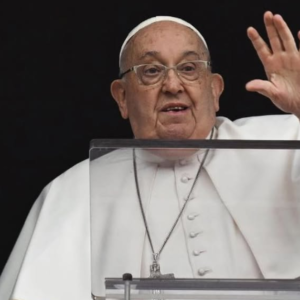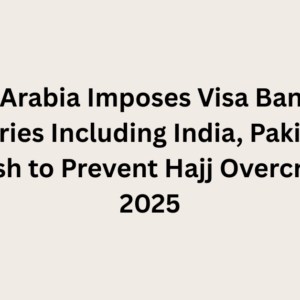
In a dramatic policy shift that could impact the future of over 3 lakh Indian students, the United States Congress has proposed a bill to terminate the Optional Practical Training (OPT) program — a vital post-study work visa that enables international students, especially those in STEM fields (Science, Technology, Engineering, and Mathematics), to remain in the US for up to three years after graduation to gain real-world experience.
This move has triggered widespread panic among the Indian student community in the US. According to the Open Doors 2024 report, India became the largest source of international students in the US during the 2023–2024 academic year, with 331,602 Indian students enrolled, a significant 23% rise compared to the previous year. Among them, nearly 97,556 students were on OPT, marking a 41% increase — a clear sign of how critical this visa route is to Indian talent abroad.
The new bill comes amidst a wave of anti-immigration sentiment, gaining momentum from former President Donald Trump’s 2024 campaign, which focuses heavily on tightening visa norms, enforcing deportations, and revoking policies seen as favorable to foreigners. The proposed rollback of OPT fits squarely within this agenda, potentially ending a pathway that has long been considered the bridge from education to employment for Indian graduates.
Many Indian students who were counting on OPT as a stepping stone to H-1B work visas are now being forced to rethink their career strategies. With the uncertainty around OPT’s future, students on F-1 and M-1 visas are hastily applying to US companies that offer H-1B sponsorships, but the competition is cutthroat, and visa quotas are limited. Leading tech giants like Google, Microsoft, Infosys, Amazon, and TCS have historically sponsored international talent, but they cannot absorb the thousands who might now flood the job market.
The anxiety isn’t just limited to the US. In India, where families often invest upwards of ₹50–60 lakhs on overseas education, this development could severely impact the return on investment. It may even lead to a reverse brain drain, as skilled professionals may be forced to return to India or look at alternate countries such as Canada, Germany, Australia, or the UK, which continue to offer more stable post-study work policies.
Universities across the US are also voicing concern. Many rely on the presence of international students not only for academic diversity but also for financial sustainability. The loss of OPT may make American education less attractive, leading to a potential decline in international enrollment.
However, there is hope. Many stakeholders — including educational institutions, tech companies, and immigration rights organizations — are expected to lobby against the bill. The OPT program contributes significantly to the US economy and innovation landscape by bringing in global talent, especially in tech, healthcare, and scientific research sectors.
Until a final decision is made, students are advised to act quickly:
- Seek companies that offer H-1B sponsorship
- Explore Curricular Practical Training (CPT) options if still enrolled
- Keep immigration documents and academic transcripts in order
- Consult with immigration attorneys or student advisors
- Stay updated with official news from USCIS and trusted news portals
The OPT crisis is not just a visa story—it’s a human story, one of dreams, aspirations, and global ambition. As the US redefines its immigration policies, it must also decide whether it wants to remain the world’s top destination for talent, or risk losing its competitive edge.
Stay tuned newsdailyupdates for more updates.
Also Read
Tahira Kashyap Battles Cancer Again: Her Relapse Renews India’s Focus on Regular Mammograms
LPG Price Hike in April 2025: Domestic Cylinder Becomes Costlier by ₹50
Hajj 2025 Alert: Saudi Arabia Halts Umrah & Visit Visas for 14 Nations Including India
Microsoft Copilot 2025 Redefines AI: Now It Sees Your Screen, Remembers Your Habits & Acts Autonomously





